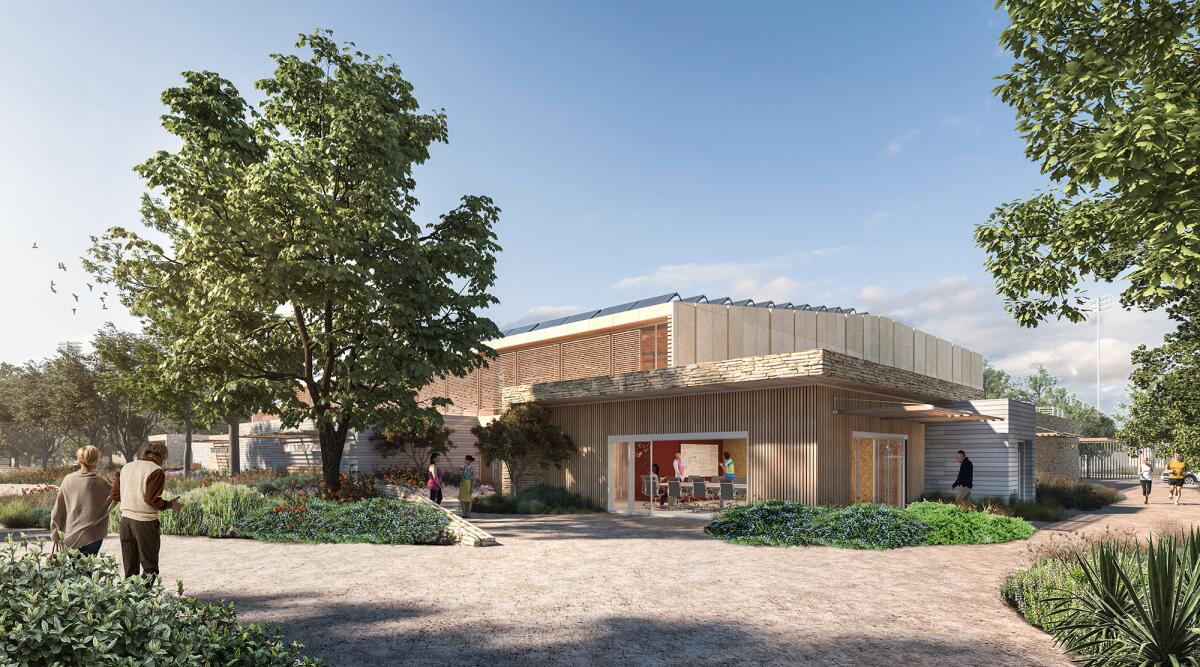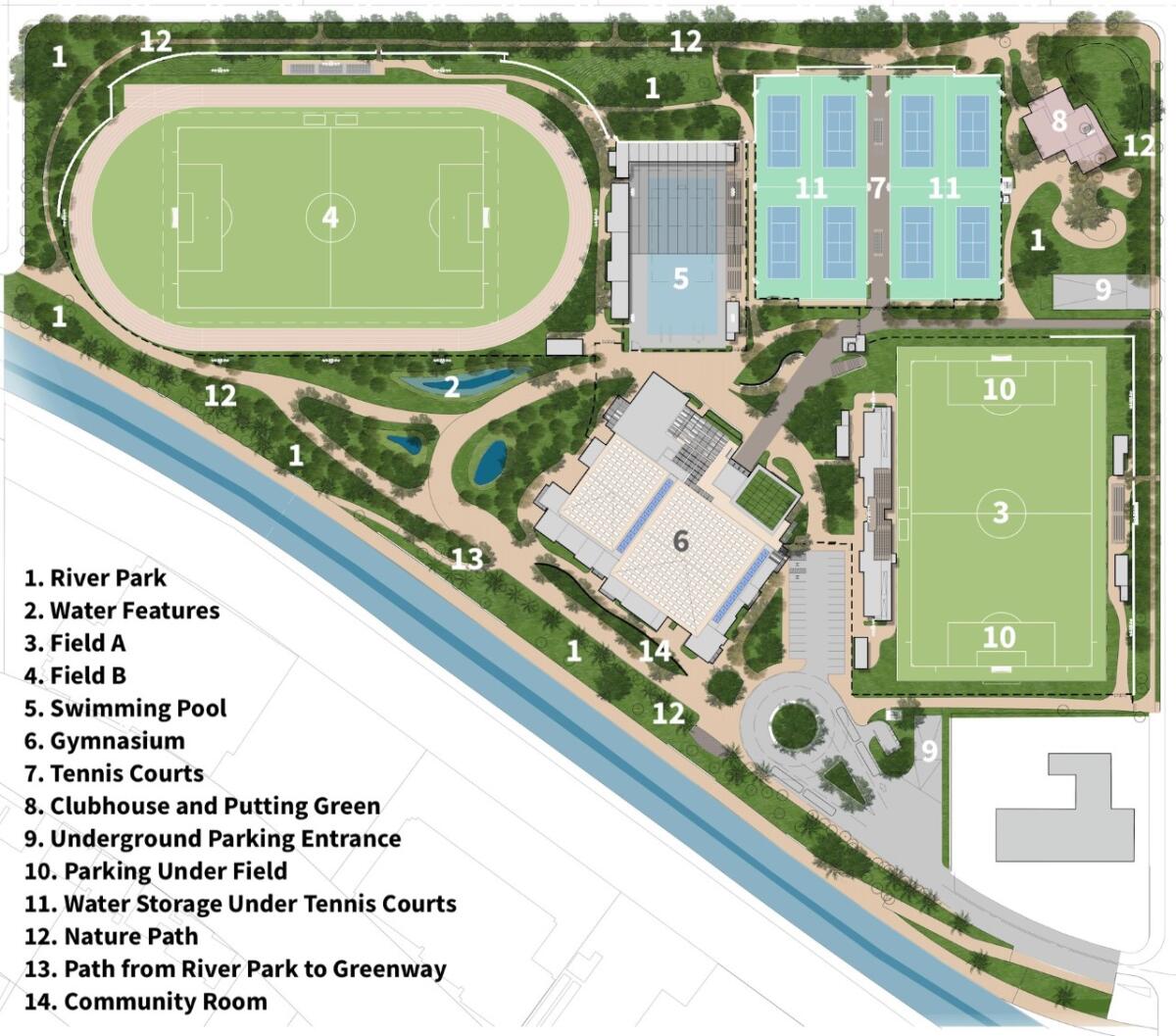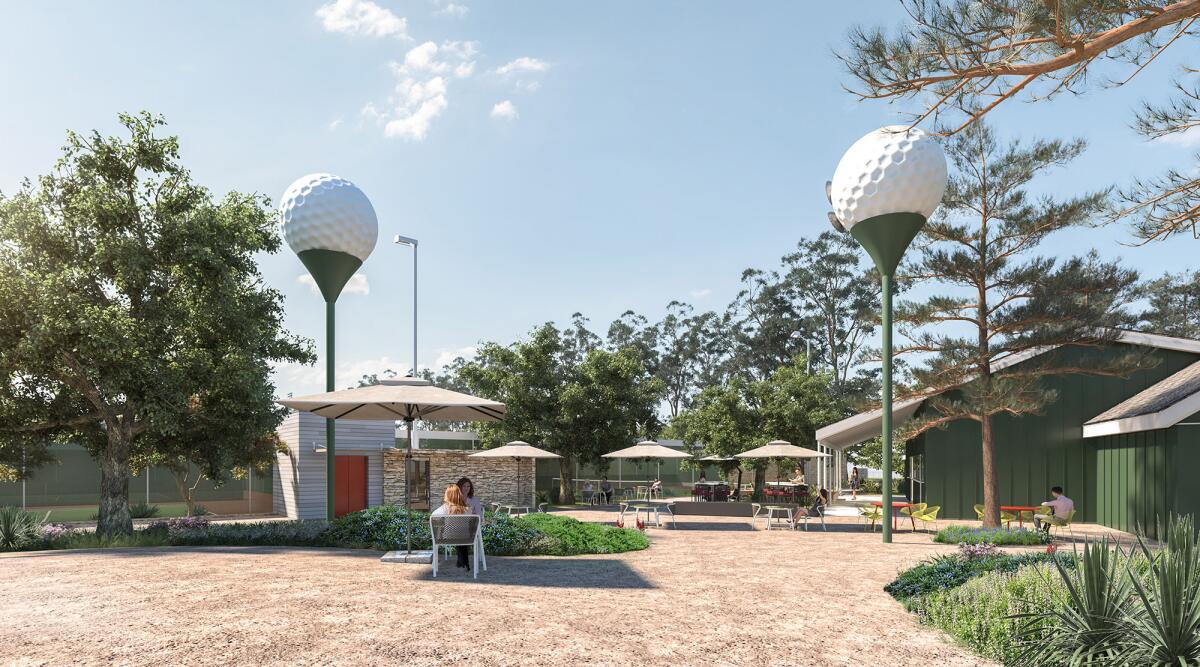Harvard-Westlake’s plan for an athletic facility in Studio City draws heated opposition

- Share via
A golf course along the Los Angeles River in Studio City has long served as a local gathering spot, attracting the occasional A-list celebrity in decades past.
On Tuesday, the Los Angeles City Council will vote on Harvard-Westlake’s sweeping plans to transform the Weddington Golf & Tennis site into an athletic campus — a proposal that has divided the community.
The exclusive private school, where annual tuition is more than $46,000, purchased the 16-acre riverside site from Weddington and is looking to build two playing fields, a two-story, 80,249-square-foot gymnasium, swimming pool, an underground parking lot, eight tennis courts and more.
The facilities would serve the school’s campuses in Studio City and Holmby Hills, with shuttles bringing students to the site, said Brian Lewis, a representative for the project. Carpooling would also be encouraged, he said.

Eric Preven, a 35-year resident of Studio City, described the Weddington as the “heart” of the neighborhood, a place where locals hit golf balls with their kids, take walks or have coffee.
The project is for the “elite,” said Preven, a City Hall watchdog. “This is Wall Street vs. Main Street.”
Both City Council President Paul Krekorian and councilmember Nithya Raman, who represents this San Fernando Valley neighborhood, support Harvard-Westlake’s plans. A planning committee made up of city councilmembers last week denied an appeal of a conditional use permit for the project, allowing it to move forward.
Mashael Majid, Raman’s deputy chief of staff, wrote in a letter to councilmember Marqueece Harris-Dawson, who chairs the planning committee, that the office empathizes with “people in the neighborhood who feel a palpable emotional connection to the golf and tennis facilities; it has been part of their community for generations.”
The sports facilities will be available to the public when not in use by the school, according to officials. Angel City Sports, which works with individuals with physical disabilities or visual impairments, will also use the facilities.
A 5.4-acre public park along the river is also part of the plan.
A packed City Planning Commission hearing in August drew supporters and opponents.
“It’s going to be a great asset for our children,” testified Susan Pratt, who said she lives near the proposed site and plays tennis at Weddington.
Commission President Samantha Millman said that locals rejected past plans for a residential component on the site. She also said she understood there was “a lot of emotion” about the proposal.
“The city has not shown any willingness or ability to purchase it to have it remain public open space,” Millman said. “And so, as far as a low-impact project on the site, I think this is about as low-impact as you can get, without it being a private park.”

Harvard-Westlake President Richard B. Commons said at the commission meeting that the school plans “to share” the new facility and that school officials worked with the community on the proposal.
Opponents want the council to delay Tuesday’s vote because of what they allege are ethics violations by Millman and Caroline Choe, another planning commission member.
Millman and Choe are Harvard-Westlake alumni and should have recused themselves from the vote, according to a complaint filed with the city’s Ethics Commission last month by opponents.
Their complaint alleges that Choe has personally donated approximately $500,000 to Harvard-Westlake over more than 10 years, while a family foundation associated with her has donated an additional $50,000. Choe is also a founding board member of the Harvard-Westlake Korean-American Alumni Network.
Millman has also made donations to the school, the complaint states.
Millman told The Times that she sought guidance from the city attorney’s office well in advance of the planning commission hearing “and followed their advice to the letter.”
Choe also said she followed the advice of the city attorney.
Studio City resident Jesse Sanford was among those behind the Ethics Commission complaint.
He said he wants more “concrete language” from the school and the city on student drop-offs and pick-ups.
“We’re concerned about traffic flow,” said Sanford. “This property is nestled directly in a [residential] neighborhood.”
The site, bounded by Valley Spring Lane, Whitsett Avenue, Bellaire Avenue and the river, once operated as a sheep farm and later a melon farm. It was turned into a golf course in the 1950s.
Tennis courts were added in the 1970s, The Times wrote in a 1987 article about the facility, then called the Studio City Golf & Tennis Club.
“Occasionally, a Hollywood celebrity like Bob Hope or Clint Eastwood stops by to hit a bucket or tackle the 1,010-yard, nine-hole course or make Hollywood small talk,” the article said.
Harvard-Westlake purchased the site in 2017 and unveiled its athletic campus plans two years later.
More to Read
Sign up for Essential California
The most important California stories and recommendations in your inbox every morning.
You may occasionally receive promotional content from the Los Angeles Times.














